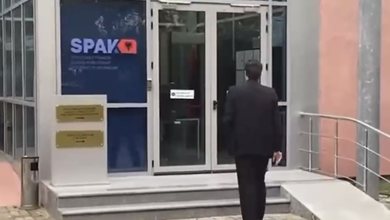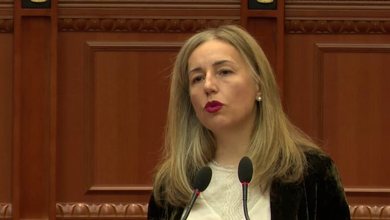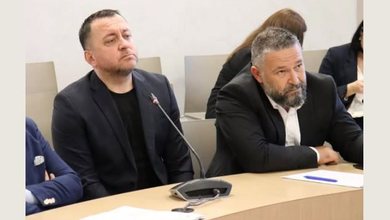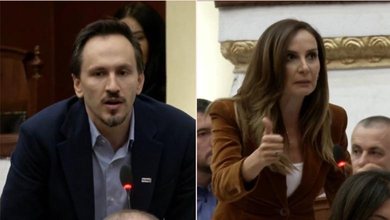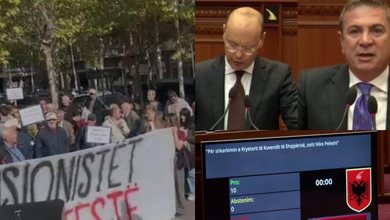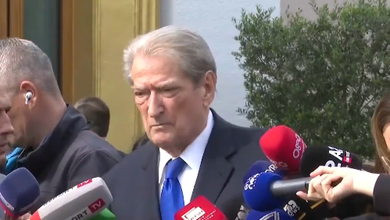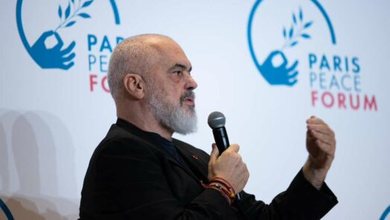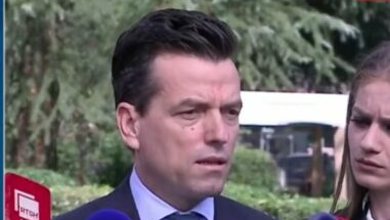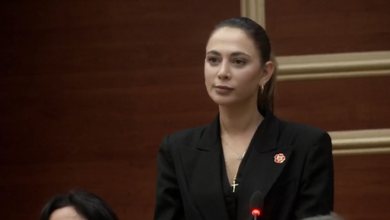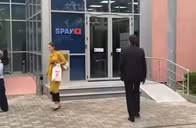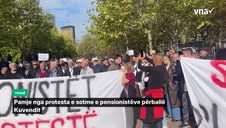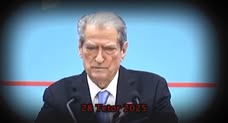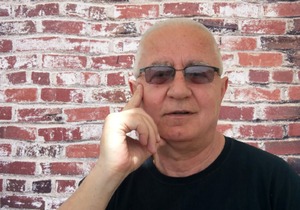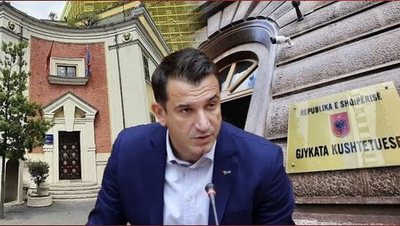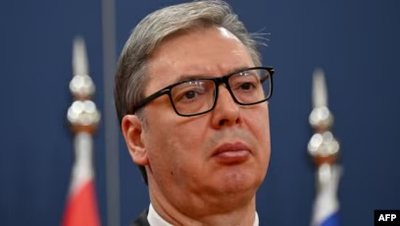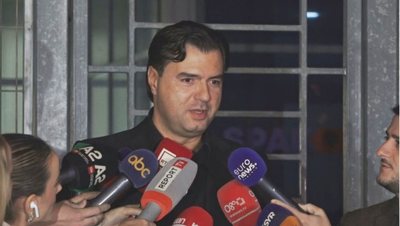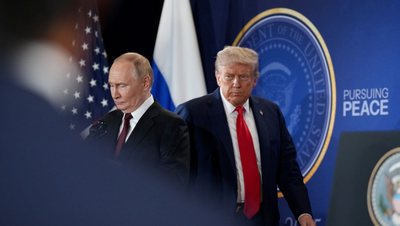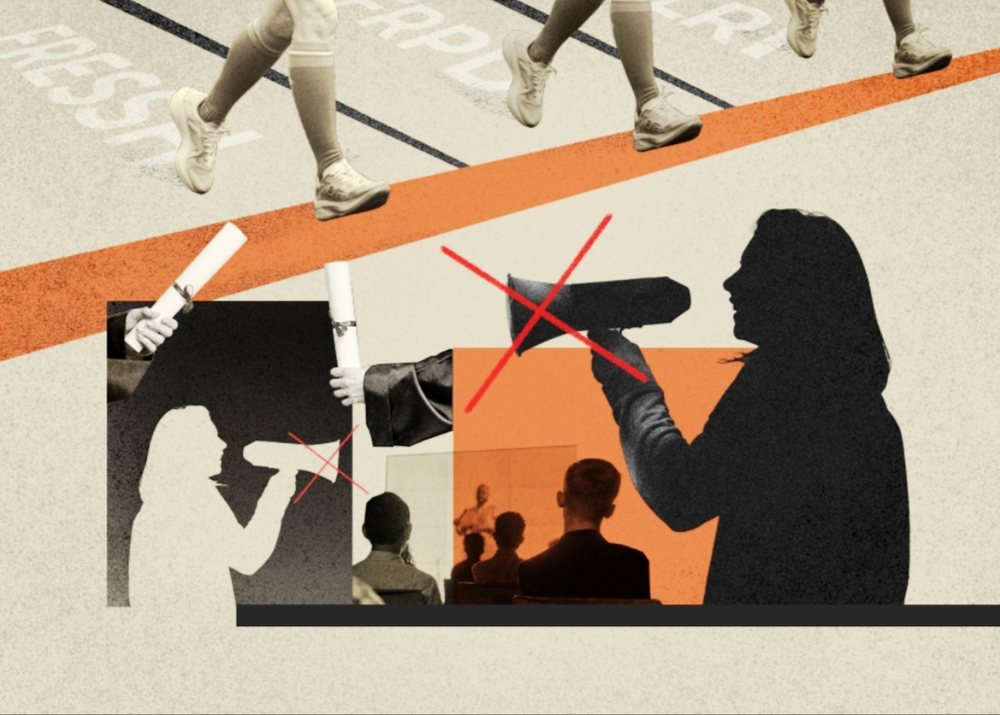
Once a platform for youth engagement in politics, party youth forums are losing their weight and influence, serving mostly as decor for parent parties or as instruments for electoral mobilization.
Tea Islamaj was only 14 years old when she first became involved in politics with great ambitions.
It was 2013, a time when the Socialist Movement for Integration had just been reconfirmed in power in coalition with the Socialist Party and its youth forum was seen as a quick springboard for political and administrative careers in Albania.
Tea initially worked as a high school coordinator for the Youth Movement for Integration, LRI, and, in the 2017 parliamentary elections, saw her name on the list of candidates for MPs. But four years later, she decided to retire from politics.
“There were a lot of elbows and you didn't know where to cut them,” recalls Tea, now 27 and a journalist by profession. “You grow up in the mouth of the wolf all the time,” she added, emphasizing that even young people in politics follow the idea of “divide and rule.”
Her experience is not unique.
While the majority of young people in Albania are indifferent to the political system, several thousand are currently engaged conventionally in party youth forums, but only a few of them manage to find space in the harsh political scene.
According to leaders at various stages of the three main youth forums, their journey has often been filled with barriers and prejudices.
Meanwhile, the youth forums themselves seem to be losing their former importance as "incubators" for the creation of new generations in politics, transforming into structures that serve either as decor for parent parties, or as instruments for electoral mobilization.
Political experts and researchers emphasize that young people in Albania are facing a crisis of representation in politics, while the forums where they engage suffer from formal decision-making, a lack of internal democracy, and dependence on party structures.
“Today, youth forums follow the same path as the parties that created them; with little space for internal democracy and a strong focus on electoral mobilization,” says Lutjona Lula, political expert and executive director of the Erasmus Student Network, ESN.
"Many young people have been catapulted directly into leadership positions in government, without going through proper processes of representation or competition within the forum," Lula added, considering this an indicator of growing autocratic practices.
“Formal privilege”
Tea Islamaj was involved in the LRI for 10 years, before retiring from politics. Photo: Ilda Hoxha.
Since the Student Movement in the early 1990s, which accelerated the fall of the communist regime and paved the way for political pluralism in Albania, young people have been seen as a factor of change in society.
Later, in 2014, young people played an important role in the protests to ban chemical weapons, and in 2018, with the wave of protests against the Higher Education Law.
And yet, most young people in Albanian society feel isolated and disconnected from the political system.
According to a 2019 national survey, an overwhelming majority of 80% are not engaged in political parties or social activism. Only a minority of 10.8% described themselves as party members, while 9.2% described themselves as political activists.
The Eurosocialist Youth Forum, FRESSH, the Democratic Party Youth Forum, FRPD, and the Youth Movement for Integration, LRI, together number tens of thousands of members across the country, but only a small percentage are actually active.
Former leaders of these forums at different times also share different experiences; some told BIRN that they faced barriers and prejudice from those who saw youth engagement as a formal privilege, while others say they were able to exercise internal democracy and dictate important decision-making.
Joleza Koka, leader of the Eurosocialist Youth Forum, FRESSH, in the years 2012-2016, speaks with a dose of pessimism about the role and real power that young people have in influencing politics. Koka recalls that despite important elections or debates during the time she led FRESSH, key decisions were often “made from above.”
“In moments of conflict, I was openly told to keep quiet and be content to be sitting at that table, even though I had no say,” recalls Koka, now a member of the Tirana City Council. “This kind of attitude reduces young people to spectators of a process that should have been inclusive.”
On the other side of the political spectrum, Belind Këlliçi, leader of the FRPD in the years 2015-2021, says that there have been strong debates within the forum and that they have also made strong changes to the DP statute.
However, on at least one occasion, Këlliçi tasted the bitter taste of disappointment.
Elected through the “one member, one vote” principle in a tough race in 2015, Këlliç found himself left off the list of candidates for MPs in the 2017 parliamentary elections, contrary to tradition in the Democratic Party. He describes this as his first “break” with reality.
"I expected a meritocracy system and a career system within the DP, but all of that turned into an illusion and an extraordinary disappointment in 2017, when, in violation of the statute, the former party chairman decided to exclude me without any political, rational or logical reason from the race to be part of the Assembly of the Republic of Albania," recalls Këlliçi.
Glindxhet Madhi from FRESSH in Tirana was prejudiced against party forums himself, before a debate championship pushed him down that path. He believes that youth forums should not be “organizational extensions,” but should be resized.
"My expectation is that the political forum will not be a facade platform, but a real structure that produces new ideas, policies and leaders," he emphasized.
Crisis of representation
More than three decades ago, most young people were joining the Democratic Party as the first opposition force in the country, but Monika Kryemadhi chose the opposite direction.
In 1991, she was just 17 years old when she joined the Eurosocialist Youth Forum – a decision she considers 34 years later as the turning point that defined her life.
Kryemadhi was elected chairwoman of FRESSH in March 2001, at perhaps the only time in Albanian politics when a youth forum was in conflict with the party chairman and played a key role in determining the new leadership of the Socialist Party.
Kryemadhi remembers that period as a model for internal democracy; where secret ballots, strong debates, and a sense of solidarity prevailed, which, according to her, is completely lacking today.
Many years later, Kryemadhi tried to evoke the former history of FRESSH in efforts to strengthen the LRI, but when asked about the impact of the forums today, Kryemadhi replied: "Zero."
"Today everyone thinks they are doing politics with social networks," said Kryemadhi, who has now resigned from active politics as a result of corruption charges brought against her and her ex-husband Ilir Meta by the Special Prosecution Office.
"The hysteria of fake address communications, likes and shares for statistics never tell you what people really need to change," she added.
Kryemadhi is not alone in thinking that today's youth forums have lost their influence.
Afrim Krasniqi, a political scientist and head of the Institute for Political Studies, also told BIRN that unlike in the 1990s, today's leaders of political forums do not represent young people either in terms of age or the problems that concern them.
According to him, the youth of the forums are used according to the party's needs - sometimes for protests and sometimes for rallies, but there are no cases where the youth have exerted pressure on the party on important issues.
“So far, the practice is that the party orders and the forums implement…,” said Krasniqi, assessing that this principle has weakened the image, specific weight and mechanism that would push these forums towards representing young voters.
The representation gap is also noted by Ilir Kalemaj, a political scientist and lecturer at New York University in Tirana, as according to him, the youth forums themselves are underrepresented within party structures.
Kalemaj calls FRESSH an atrophied structure and LRI a declining forum, while he thinks that FRPD is currently in a better position. However, he assesses that all three forums play a “generally passive” role.
“Youth forums have little or no influence on the parent party’s policymaking,” Kalemaj told BIRN.
For Lutjona Lula from ESN, the essence remains the lack of internal democracy, both in the forums and in the parent parties.
"Internal democracy in youth forums is often limited. Electoral processes are controlled by parent party structures and there is no genuine culture of free debate or representation of different opinions," she stressed.
No access to funds
Active youth participation in politics is not financially supported in a sustainable manner, even in cases where engagement occurs through the channels of official party forums. All three forums analyzed, FRESSH, FRPD and LRI, operate in the absence of dedicated budgets and bank accounts, which limits their ability to truly influence politics.
Former leaders of the forums told BIRN that the financial problem was constant – which made these organizations dependent on party finances and priorities.
"Funds have been the biggest problem we have had during the operation of the Youth Forum. We have not had access to funds, we have not had our own account... we have operated with DP funds," said Këlliçi, adding that hundreds of trainings and activities were covered thanks to cooperation with foreign foundations.
The former leader of FRESSH, Joleza Koka, also acknowledges the funding problem, emphasizing that support for youth activities was often conditioned by the party's priorities.
"Support was limited and tied to the party's priorities at the time. This made it difficult to organize independent activities," said Koka, adding that many initiatives were realized thanks to volunteerism.
Party pressure and the lack of infrastructure make it impossible, according to Afrim Krasniqi, for the forums to function as independent structures.
“Parties receive annual budgets, but they are administered from the center,” he said. “Youth forums do not have independent finances and their activities depend on the political will of the party,” Krasniqi emphasized.
A new approach to politics
Today's youth are considered to be less ideological than previous generations, and their strong connection to technology and social networks pushes them towards seeking a strong individual voice over collective organization.
They simultaneously face major challenges in education, access to the labor market, or immigration, but few of these problems find echoes in the public and political debate.
The current leader of the FRPD, Besart Xhaferri, says that he will dedicate his involvement in politics and his mandate in parliament to these problems in particular.
“I am in Parliament so that a house in Spain or England is not the only option for a young Albanian to buy their first home in Albania,” Xhaferri told BIRN.
"I have friends of mine in the FRPD who have taken their rafts and been forced to work in barns in England, only to find it impossible to secure shelter here," he added.
Grindxhet Madhi from FRESSH believes that today's youth have a different approach to politics and are no longer motivated by rhetoric. Connected to the world through technology and information, he believes that young people are no longer satisfied with promises, but demand tangible results.
“Our main change is not just in skepticism, but in vision: we want a more functional and capable politics, one that provides real answers to the challenges of our generation,” says Madhi. However, he notes that young people often lack “motivation and consistency.”
Joleza Koka also believes that young people have become more pragmatic and individualistic, but she also sees this change as a risk. Taking the race to choose her successor at the head of FRESSH in 2016 as an example, Koka cites the extremely high number of candidates as an example of the forms of organization of today's youth.
“…no one wanted to be part of a group anymore, everyone wanted to be the group's leader,” said Koka, adding: “The fact is that today there is no longer a group or a leader.”/ Reporter.al (original title: 'In the Wolf's Mouth': The Challenges of Youth Engagement in Albanian Politics)


